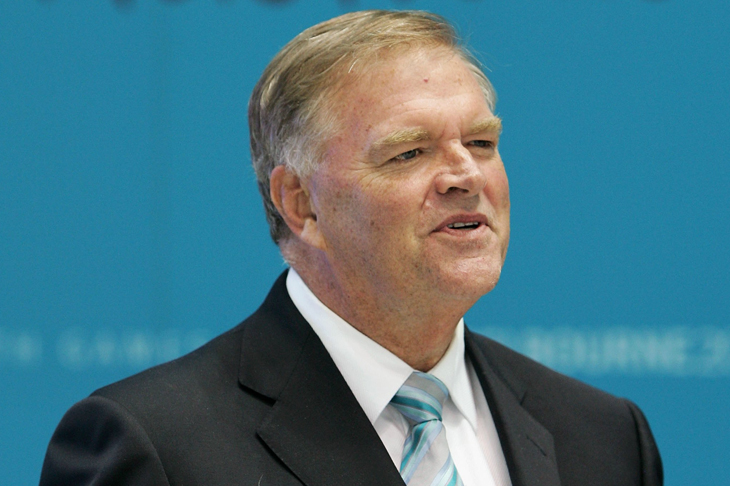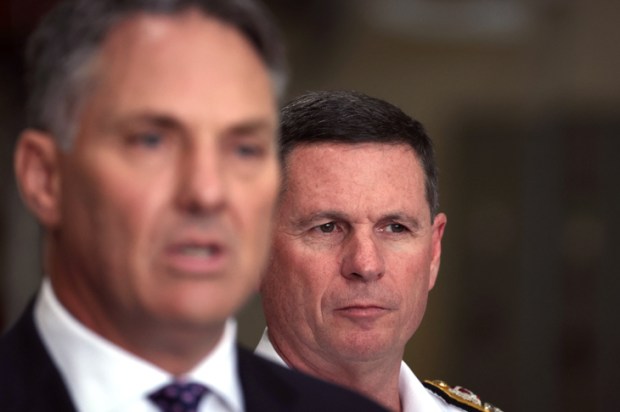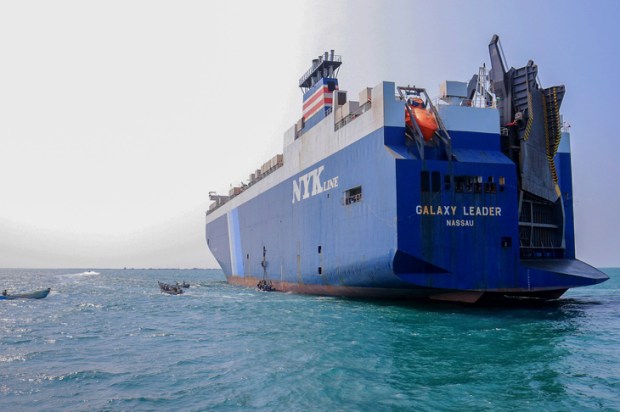Kim ‘Bomber’ Beazley, twice federal opposition leader, a former ambassador to the United States, and a former governor of Western Australia, has re-emerged from the West to issue a call to arms – though he fears it may all be too late.
With the urgency of the young Lochinvar he is unstoppable in his desire to awaken Australians, as he paints a dire picture of the nation’s lack of defence preparedness.
On his first trip to Sydney after five years of vice-regal and Covid-19 isolation he delivered an address in early December to the Ramsay Centre for Western Civilisation (of which he was a board member), outlining the critical need to spend more, and more intelligently, to re-establish Australia’s defence capabilities.
His well-timed thrust into public debate comes as another former Labor defence minister, Stephen Smith, and a former chief of the Defence Force, Air Chief Marshal Sir Angus Houston, are working on a review of defence to be released by next March.
Beazley, firing a shot across the review’s bows, warned, ‘if we do not have the capacity to defend ourselves, the way the drift of power is going in the region which we inhabit is decisively against us, and we will need to be even more effective than we’ve ever been before’.
Speaking without notes but fervently from the heart, he described himself as the most ‘pessimistic of politicians’ as opposed to former prime minister John Howard (who was in the audience) whom Beazley said had ‘to be one of the most optimistic politicians I’ve ever known’, before candidly admitting that ‘when I sit down to talk about self-reliance on defence, understand that that’s my approach, and that generally speaking, I’m quite frightened’.
He noted that current Defence Minister Richard Marles had significantly altered the guidelines for the nation’s strategic thinking in a speech to the Sydney Institute in November in which he bluntly admitted Australia’s defence capabilities cannot meet those of major powers.
‘Australian statecraft is only viable if it is underpinned by the ability to project force and power to deter military threats and defend Australia’s national interests within our immediate region,’ Marles had said, adding, ‘The cornerstone of future Australian strategic thought will be impactful projection…. We must invest in targeted capabilities that enable us to hold potential adversaries at risk and distance and increase the calculated cost of aggression against Australia and its interests. And we must be able to do this through the full spectrum of proportionate response.’
Beazley said this was a revolution in Australian defence calculation and that almost nothing in the Australian defence forces actually delivers that.
We need long-range missiles, delivered by air or by sea, which we do not have, he said, although Lockheed and Raytheon are trying to design jointly a missile especially for us.
Harking back to the second world war, he singled out BHP managing director Essington Lewis, who, after pre-war travels in Europe and Japan, had the foresight to stockpile reserves of steel and iron ore, putting the national interest before the company’s profits, a situation current boards would not tolerate.
‘And thank God (he did),’ Beazley said, ‘because that provided everything for our defence industries during the course of the war. And we built in one year, I think it was ’42, could have been ’43, we built 28 corvettes alone. Imagine that as a ship building program these days.’
‘But that performance by us is actually impossible now. It’s impossible now, partly as a result of how successful it was, because it changed expectations of the federal government. So that war-time centralisation of tax and the superb federal performance meant that most of the functions that had previously been the sole responsibility of the states became federal responsibilities.’
When Beazley was defence minister defence spending was around 2.5 per cent of GDP and 8 to 9 per cent of the federal budget.
But for the last 25 years, we’ve spent less than that and we are now spending about 6 per cent of the budget on defence.
During ‘our year of living dangerously’ 1942 to 1943, defence expenditure rose to 34 per cent of GDP and 70 per cent of the budget. We provided so much support for General Douglas MacArthur’s forces that when the war was over the US owed us money under the Lend-Lease program.
The Smith-Houston defence review should pay attention to several of the many points Beazley made during his extraordinary hour-and-a-half address.
Along with the urgent need for long-range missiles, the capabilities of sea mines as defensive and counter-defensive measures must be included, along with the need to increase our miserable fuel reserves.
Across the north, he said, every new highway should have the capacity to perform as a landing strip for every aircraft, and underwater robotic technologies, used to service offshore oil rigs, should be made ready to be weaponised.
The mining of rare earth resources needs support in the West (something the mining unions would love) , and something the US is already exploring. China rigs the prices, wreaks environmental devastation, and pays extremely low wages, rendering investments in other countries unviable without subsidies.
Noting that 3,240 American weapons systems contain rare earth minerals, Beazley said we can probably supplant the current level of dependence on China if we dig up and process here.
The Aukus agreement is about mutual technology development, it is not a defence pact like Anzus.
The protection, mining and processing of our rare earth resources should be part of the defence review.
Beazley, always a big man, with big ideas, wonders how much pain Australians would be prepared to endure to protect their nation.
He wants Essington Lewis’s spirit to come back and, as he said ‘empower us all as we consider this issue’.
‘(Lewis) did not worry about the cost to BHP of all the iron ore that he was storing. And the steel that he was storing. He couldn’t give it a damn. He thought that if he didn’t, his country would disappear. Now, if we don’t get this thing resolved, that might happen 80 years later.’
Got something to add? Join the discussion and comment below.
Get 10 issues for just $10
Subscribe to The Spectator Australia today for the next 10 magazine issues, plus full online access, for just $10.
You might disagree with half of it, but you’ll enjoy reading all of it. Try your first month for free, then just $2 a week for the remainder of your first year.














Comments
Don't miss out
Join the conversation with other Spectator Australia readers. Subscribe to leave a comment.
SUBSCRIBEAlready a subscriber? Log in